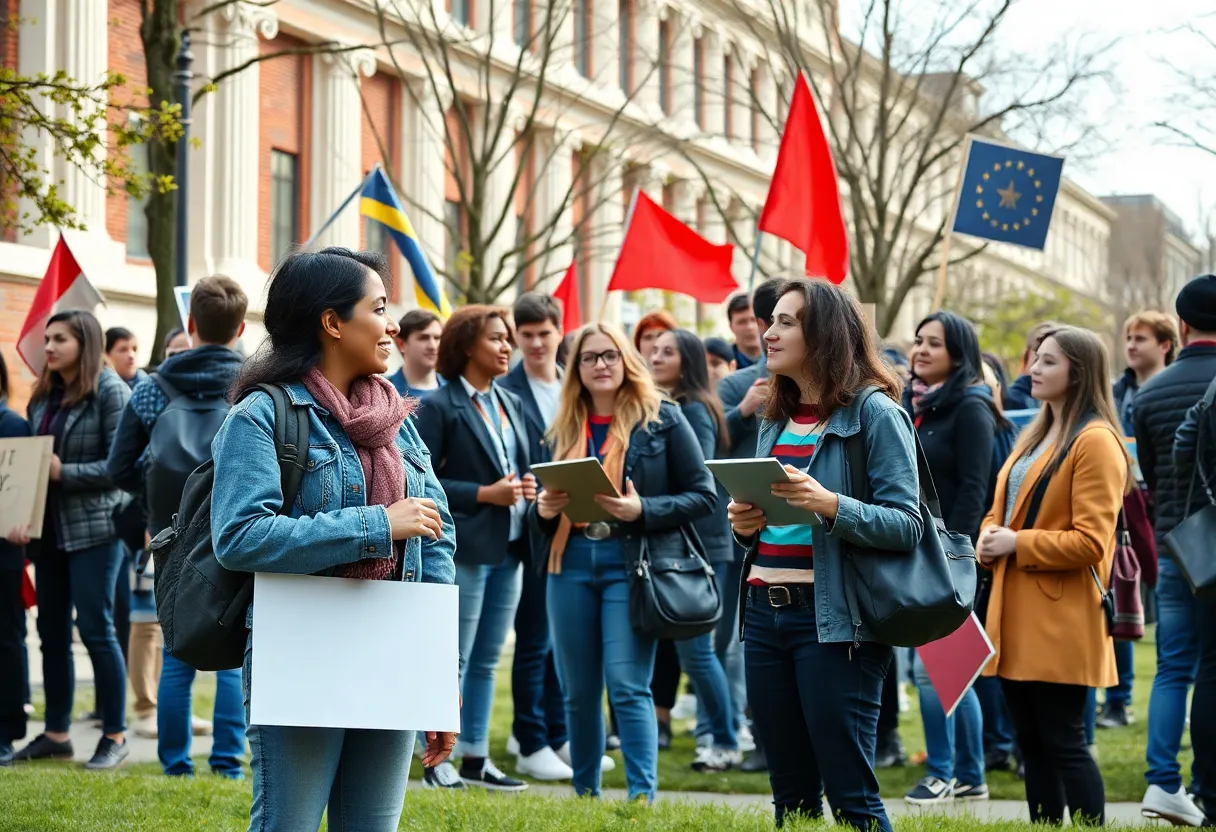News Summary
Badar Khan Suri, a postdoctoral fellow at Georgetown University, is facing deportation following allegations of political connections to Hamas and antisemitism. Detained by DHS, Suri’s case raises concerns about free speech and academic freedom. Legal battles are underway as supporters advocate for his release, emphasizing implications for international scholars amidst political dissent.
Virginia – Badar Khan Suri, a 41-year-old postdoctoral fellow from India, is facing deportation amid serious allegations regarding his political activities and family ties. Suri has been detained by the Department of Homeland Security (DHS) as part of an ongoing crackdown on international scholars linked to pro-Palestinian movements. He is accused of promoting antisemitism and spreading propaganda for Hamas, a designated terrorist organization.
Suri has been residing in the United States on a J-1 visa since late 2022 and is employed at Georgetown University, where he focuses on minority rights and teaches at the Alwaleed Bin Talal Center for Muslim-Christian Understanding. His marriage to Mapheze Saleh, a Palestinian American with family connections to Hamas—including a father who was an adviser to Hamas leader Ismail Haniyeh—has intensified scrutiny and led to his detention following the publication of articles by two conservative groups opposing campus antisemitism.
The DHS detained Suri after these articles highlighted his and his wife’s support for Palestinian rights, alleging that his connections could have “adverse foreign policy consequences.” Currently, he has not been charged with any crime, and there has been no public evidence disclosed to substantiate the allegations against him.
Suri’s detainment fits into a larger trend seen during the Trump administration, which has targeted international students and researchers who criticize Israel or advocate pro-Palestinian positions. His public comments on social media, where he has expressed skepticism about narratives surrounding the October 7, 2023, Hamas attacks on Israel, form part of the basis for the allegations against him. However, legal experts point out that deportation based on family ties or social media statements is highly unusual and raises concerns about the infringement of free speech rights.
Georgetown University officials expressed their commitment to upholding free expression rights for their community members, indicating that they are unaware of any illegal activities involving Suri. The university has reiterated its stance on academic freedom and the rights of faculty members to engage in political discussions.
Legal proceedings surrounding Suri’s case are unfolding, with an initial hearing already indicating the government’s plan to deport him. Public response includes support from hundreds of alumni, students, and Jewish clergy, who are calling for his release and raising alarms about the implications of his detainment for free speech and academic freedom. They argue that targeting Suri may set a concerning precedent for dissenting voices within academia.
A federal judge has ruled that Suri’s case should be litigated in Virginia rather than Texas, where he was originally detained, indicating concerns about potential “forum shopping” tactics by the government that could undermine his legal rights. The judge labeled Suri’s situation as “extraordinary,” suggesting it may constitute a violation of his legal protections.
With the recent ruling in his favor, Suri’s legal team is now positioned to argue for his release on bond while challenging the basis of his detention. His case brings to light critical issues at the intersection of immigration law, academic freedom, and political dissent during a time of heightened socio-political tension regarding attitudes toward Israel and Palestine.
The implications of Suri’s detainment and potential deportation extend beyond his personal situation, as civil rights groups and legal experts claim it reflects a broader trend of suppressing political activism and dissent under the guise of national security. As the legal process continues, the outcome of this case will likely have significant ramifications for the academic community and the rights of international scholars in the United States.
Deeper Dive: News & Info About This Topic
- The Washington Post: Georgetown Scholar Badar Khan Suri
- The Hoya: Judge Denies DOJ Motion to Move Khan Suri’s Case
- The Washington Post: Badar Khan Suri Case
- NBC News: 130 Jewish Georgetown Members
- Wikipedia: Academic Freedom
- Encyclopedia Britannica: Immigration

Author: STAFF HERE WILLIAMSBURG WRITER
The WILLIAMSBURG STAFF WRITER represents the experienced team at HEREWilliamsburg.com, your go-to source for actionable local news and information in Williamsburg, James City County, and beyond. Specializing in "news you can use," we cover essential topics like product reviews for personal and business needs, local business directories, politics, real estate trends, neighborhood insights, and state news affecting the area—with deep expertise drawn from years of dedicated reporting and strong community input, including local press releases and business updates. We deliver top reporting on high-value events such as Williamsburg Farmers Market, Yorktown Market Days, and Busch Gardens Food & Wine Festival. Our coverage extends to key organizations like the Greater Williamsburg Chamber of Commerce and Colonial Williamsburg Foundation, plus leading businesses in education and hospitality that power the local economy such as College of William & Mary, The Williamsburg Winery, and Sodexo. As part of the broader HERE network, including HEREVirginiaBeach.com, we provide comprehensive, credible insights into Virginia's dynamic landscape.


